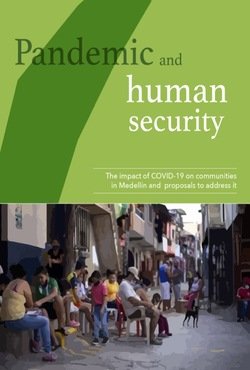By Alexandra Abello Colak (and others)
More than a year on from the declaration of the pandemic in Colombia, COVID-19 has claimed more than 100,000 lives. Of these, 12.9% have been recorded in Antioquia1, the department with the second highest number of confirmed cases, and more than 5,000 people have died in its capital, Medellín, the second largest city in the country. But while the loss of life is one of the most horrific direct consequences of the pandemic, it is certainly not the only one. The global health crisis and the measures implemented to contain the spread of the virus have had profound economic, social and institutional impacts which need to be analysed in each context in order to understand the magnitude of the challenge that an appropriate, proportionate response to the pandemic in each city supposes. This report examines the impacts of the COVID-19 pandemic on some of the most populated and most vulnerable communities in Medellín. Monitoring conducted between April 2020 and February 20212 provides the basis for a contextualised analysis of what, to date, the pandemic has meant for broad sectors of the population. On the strength of this analysis, we argue that the public health crisis caused by COVID-19 has not only deepened and exacerbated historical problems which affect the lives and well-being of people; it has also led to a progressive and generalised surge in human insecurity in the city, which calls for a concerted, comprehensive, multidimensional, participatory strategy which acknowledges the differential impacts that the pandemic has had on different groups and can help mitigate the rise in threats and risks to human security.
London: London School of Economics, 2021. 39p.



